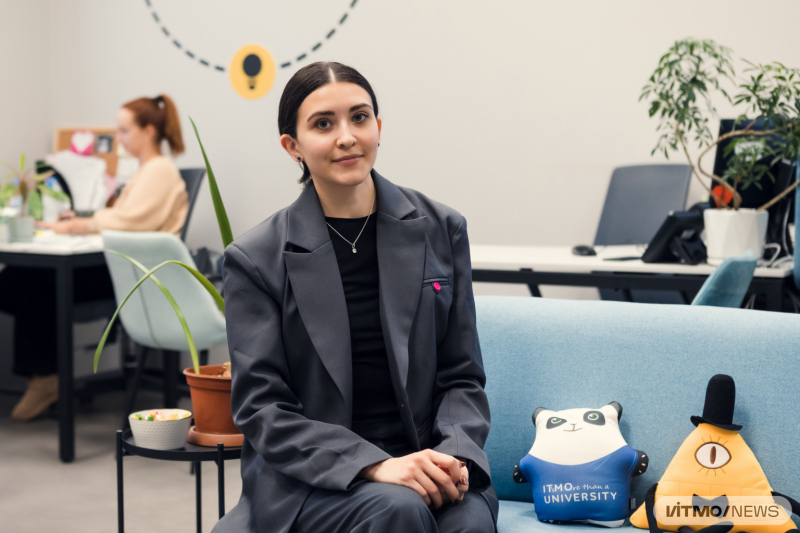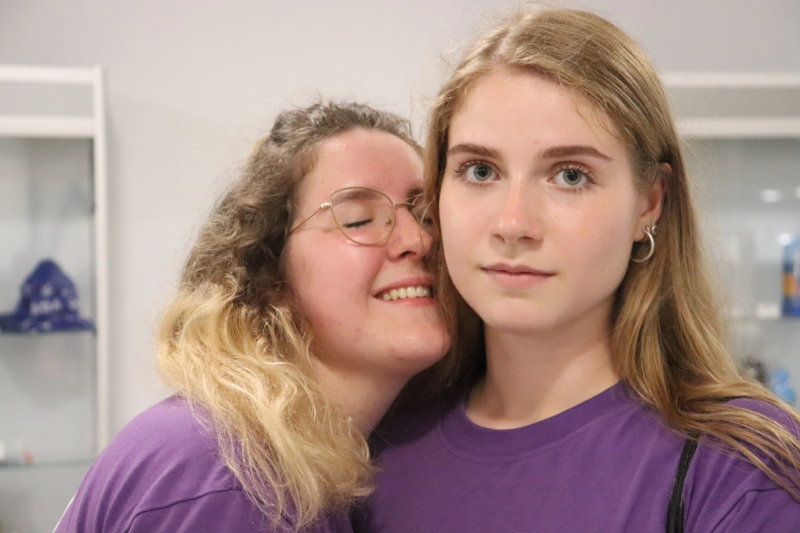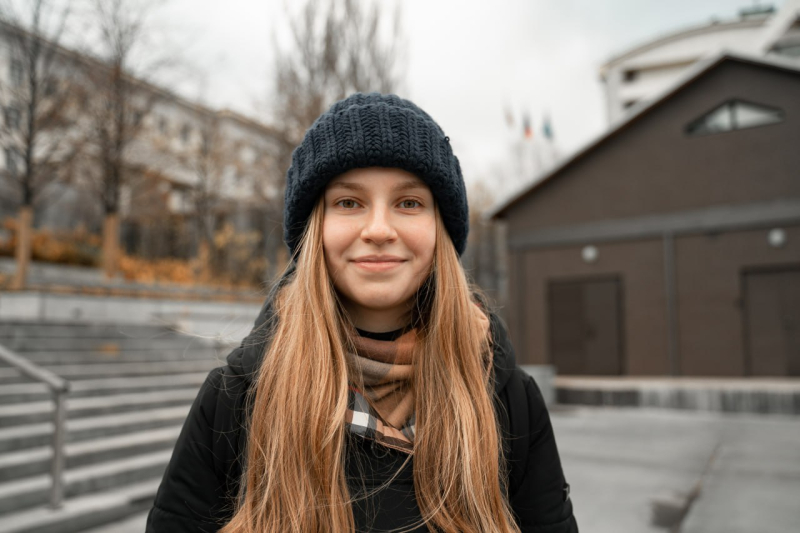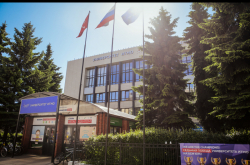First launched in 2022, DVIZH is an academic mobility program that now brings together six universities: ITMO University, the Russian Foreign Trade Academy, the National Research Nuclear University MEPhI, the Russian Presidential Academy of National Economy and Public Administration, the Peoples’ Friendship University of Russia, and Tomsk State University (starting this year). The competition allows second- to fourth-year Bachelor’s students to study for a semester at one of five partner universities and thus familiarize themselves with different educational practices, explore the subjects of their interests, and acquire additional expertise in various fields.
“The curricula we offered took into account the requests of students who came to ITMO for exchange. For instance, some were fortunate to have classes with ICPC star coach Andrey Stankevich. It’s not easy to get into his class, but we managed to make it happen for the program’s participants. For others, we picked some physics courses to add up to their experience at their home university,” notes Natalya Fenina, a lead expert for academic affairs at ITMO’s Office for Support of Educational Programs.

Natalya Fenina. Photo by Dmitry Grigoryev / ITMO.NEWS
This year, over 250 students applied for the program, with 15 of them opting for ITMO as their host university. While exchange students from MEPhI, the Russian Presidential Academy of National Economy and Public Administration, and the Peoples’ Friendship University of Russia studied physics, mathematics, entrepreneurship, and IT at ITMO, eight ITMO students traveled to the Russian Presidential Academy of National Economy and Public Administration and the Peoples’ Friendship University of Russia to expand their horizons in psychology, economics, pedagogy, and linguistics.
The list of partner universities will expand next year, welcoming new participants from Siberia and the Far East, says Natalya Fenina.
To participate in the competition, applicants need to:
-
Choose a university where they want to spend the next semester. The list of partner universities for the spring semester includes ITMO University, the Russian Foreign Trade Academy, the National Research Nuclear University MEPhI, the Russian Presidential Academy of National Economy and Public Administration, the Peoples’ Friendship University of Russia, and Tomsk State University. The number of students is limited: each university accepts between 10 and 50 people;
-
Select courses at the host university. Each university has its own set of courses and requirements for applicants. For instance, students who choose to study at ITMO will be able to pick between economics and innovation, physics and engineering, and IT. In addition to the major, the university will also offer a compulsory soft skills module and extra courses in mathematics and chemistry, as well as optional courses. At the same time, students can sign up for courses required for their studies at their home university. The choice of courses must be approved by heads of students’ educational programs;
-
Submit an application and a motivation letter via the official website before December 20, 2023. The competition is available for second- to fourth-year Bachelor’s students who study on tuition-free or fee-based positions. The motivation letter should detail the candidate’s reason for joining the program, as well as list their academic achievements such as grades, a high GPA, and certificates from student and scholarship contests.
Learn even more about how to apply for the program here.
The program’s organizers will complete their review of the applications by January 20, 2024, and the universities will finalize their individual learning tracks by January 26, 2024. Accommodation and travel costs are covered either by the student or their home university depending on the regulations. The classes will start on February 5, 2024.
Discover what the former participants of the DVIZH program from ITMO have to say about their experience of studying at a different university and city below.
Anna Gordienko
A third-year student at the Faculty of Technological Management and Innovations

Anna Gordienko (right) with her co-worker at a children's camp. Photo courtesy of the subject
The program is an opportunity not only to get to know other universities but also to master fields outside ITMO’s key focus. I’m a business informatics major. In my program, I learn to set up companies, model and manage business processes, as well as automate enterprises. As a future business analyst, I need to know how to efficiently communicate with people, namely predict their needs and resolve conflicts. That’s why I opted for psychology at the Russian Presidential Academy of National Economy and Public Administration.
Participants of the program are free to take any courses, even if they aren’t related to their specialization. Personally, I had classes with students in their first, second, third, and even fifth year of studies. In the cognitive psychology course, I learned how people perceive information, why cognitive biases occur, and when the decisions we make are conscious and when – aren’t. In the economic psychology course, I studied how marketing strategies work, what to do to make a product successful, and how economic and political situations affect the needs of consumers. The course in the psychology of management was a chance for me to try myself in the role of a personnel manager, as well as practice finding ways to resolve conflicts in the workspace and evaluate employee performance. During my psychology classes, I examined the fundamental studies and attempted to run a few of my own: I conducted surveys, collected and analyzed data. Outside classes, I was also a part of the university’s volleyball team; we even took third place in an interfaculty competition.
Now, I know how to build relations and communicate within any team, as well as anticipate future economic conditions, create a psychological portrait of the client, and evaluate employee performance. This will be of use when I manage my own team and help develop products at an IT company or startup. It was a challenge to study at both universities simultaneously – but it’s certainly worth it.
Tatyana Voropaeva
A fourth-year student at the Center for Chemical Engineering

Tatyana Voropaeva. Photo courtesy of the subject
I learned about the program last summer, but I hesitated to apply then. Yet I did it the next application round and went to study international relations at the Peoples’ Friendship University of Russia. After I received my Bachelor’s degree in bioengineering, I wanted to switch the field of study for my Master’s, but I didn’t know what to choose. Some of the options I had in mind were linguistics, journalism, and international relations. But I was unsure, so the program became an excellent test run before I proceed with my Master’s.
I decided to take four courses at my host university. First, I worried that I wouldn’t make it. But in the end, I managed to successfully combine my studies and get good grades in my exams at both universities. At my host university, I studied the foreign policies of the CIS and the EU, foreign policy analysis, and diplomatic and consular services. In these classes, I learned more about the history of international organizations and figured out how to analyze international situations based on rankings, media coverage, documents, and political speeches. Namely, I analyzed which words are most common in speeches and how they relate to politics and the popularity of officials. On top of that, I also now know – after I have studied loads of reports – how to determine the mood of a country’s population and the current political agenda.
What’s more, I also took a fiction writing course, and my story was even published in a literary magazine. This course was extremely insightful. I am more used to writing news articles as I once worked at a student media, but now I want to focus on fiction. In my free time, I attended cultural events organized by my host university and fell in love with concert photography. I carry on with my new hobby now that I’m back in St. Petersburg.
This experience helped me better navigate both politics and education. I think I’d do it all over again. Now, I understand the history and political system of Russia and other countries better – and am certain what I want to study next.





